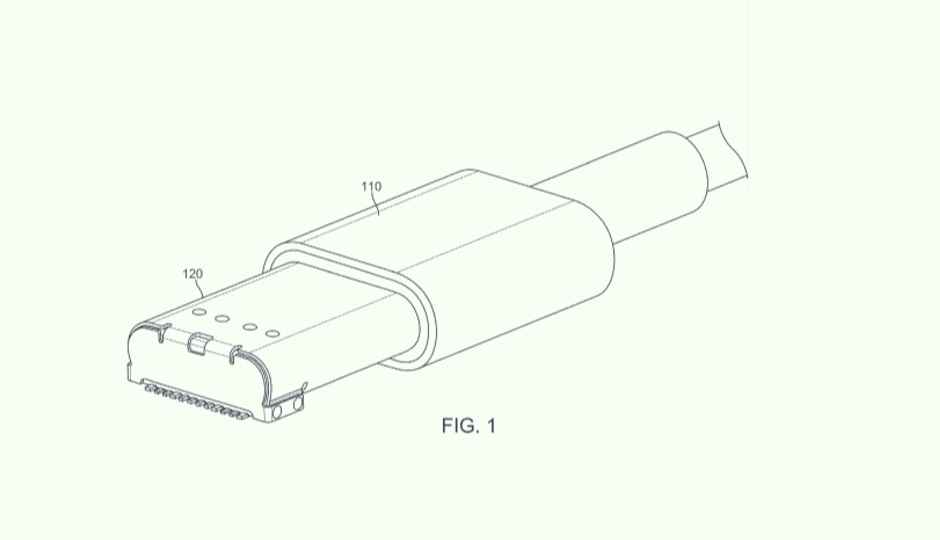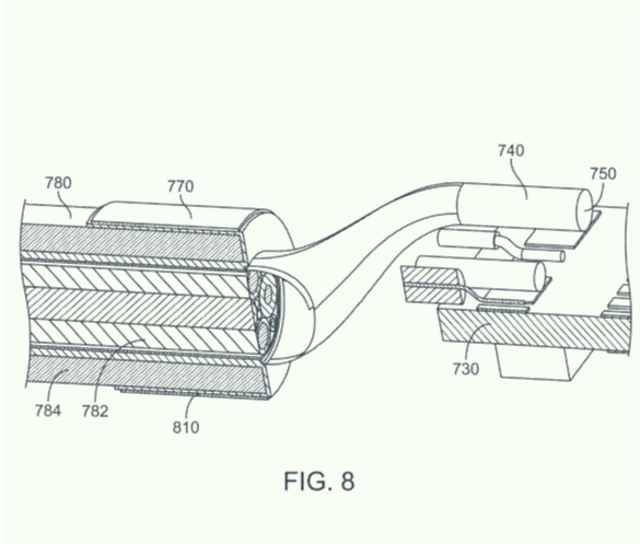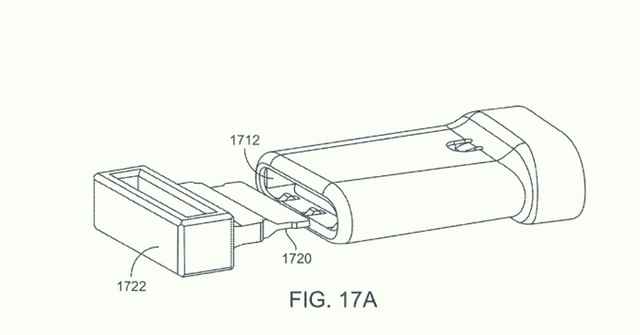Apple might make us switch cables again!

A newly filed patent application suggests Apple has a new connector in the works. Could this spell more dongles and adapters for us to carry?
If a recently filed patent by Apple takes shape, we all might have to switch cables yet again. According to The Outline, Apple has a new connector in the works. What the patent application isn’t clear about is which Apple devices will employ the new connector for this cable, as it simply states that it’s meant for “portable computing devices, tablet computers, desktop computers, wearable computing devices, cell phones, smart phones, media phones, storage devices, portable media players, navigation systems, monitors, power supplies, adapters, remote control devices, chargers, and other devices.”
Apart from the cryptic diagrams included in the patent application, nothing much is known about the new connector. There is, however, a small abstract of it which reads, “Connector inserts having retention features with good reliability and holding force. These connector inserts may include ground contacts that provide an insertion portion having reduced length. These connector inserts may be reliable, have an attractive appearance, and be readily manufactured.”
All this still only gives us little information about what sort of connector and cable we’ll be dealing with, how many Apple products will be affected, and how much it will cost. We also don’t know how much power and data the line is expected to carry. If the it is designed to support USB 3.1 Gen 2, then we know that it will be capable of transferring data at speeds of up to 10 Gbps. We also don’t know how Apple will decide to position this connector and cable in the market. If it is yet another one-cable-does-it-all solution by Apple, then there’s a good chance we’ll have to invest more in dongles and adapters.

USB Type-C, which is now the default connector for Thunderbolt 3, has been around for a while now and allows reversible connections (meaning there’s no right way up while connecting to devices). It’s being adopted by more and more computer and smartphone makers as an easy but powerful means to charge and transfer data. It’s gradually eclipsing older connectors like the microUSB port, the Mini DisplayPort, and the USB Type-A port. If Apple’s new patent realises we’ll soon be dealing with yet another new cable no one asked for. Luckily for all of us, Apple claims it will have an “attractive appearance”. That should do us a whole lot of good when we’re hurriedly carrying a clump of dongles into a meeting room.
Cover and inline image credit: USPTO
Vignesh Giridharan
Progressively identifies more with the term ‘legacy device’ as time marches on. View Full Profile





